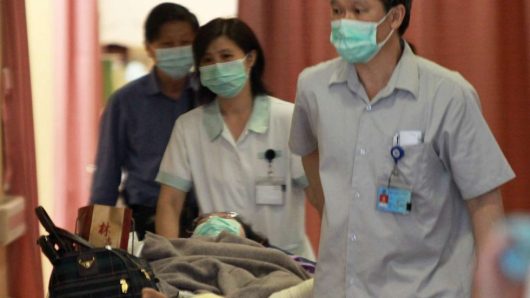Astute observations from Eva Holsinger, my pediatrician colleague here in northeastern China: “Do you want your doctor to tell you everything, right away, as soon as she knows something bad is coming at you? Take it another step: who do you want the doctor to tell first: you, or your family? In the US and other places like northern Europe, the answer to the former is umm maybe now but for sure eventually, and the second one is not even a question with HIPAA laws and all the other ways we strive to protect our privacy.
“My experience here in China has been vastly different. From our early days in 2009 we quickly heard about how often serious diagnoses are not disclosed to the patient, but to the other relatives, and they decide when and if to tell the patient. Of course I was aghast and fumed about patient autonomy, rights, lying to the patient, and more. There are many questions surrounding this that I can’t begin to answer, beginning with how..and why…and what on earth…and strong adjectives that I might quickly jump to using like insufferable and paternalistic.
“However… A friend was telling me about her father’s recent diagnosis with advanced lung cancer, and how she and her sister want to tell him but their mother does not. The mother has declined chemotherapy for him and they are telling him that his illness cannot be cured but he should eat healthy foods and take good care of his health. Every weekend the three adult kids come home with their families and have a good family time together. The dad says he didn’t have it so good until he got sick. She is pretty sure he suspects.
“My friend says they will go along with their mother because she will be around a lot longer and they don’t want to upset her too much since they have to deal with her. As we talked and she described their family’s situation I had a sudden a-ha moment. In the Chinese culture parents take care of children when they are young, and the expectation is that the children will take care of the parents when they are old and/or sick. In addition, major decisions about a young person’s life-college, career, spouse-are often all made by the senior decision makers in the family. When they age, the roles are flipped to some degree.
“In the US a big deal is made about living wills, health care power of attorneys, DNR statuses. We entrust our decision making to our designated loved ones only at the very end of the journey when we can’t make the decision ourselves. I wonder if the same choice is made but much earlier in the process here-at the beginning of the diagnosis, not at the end of life.
“There is an element of trust that seems very deep-trusting that your spouse and children will do their utmost to decide what is best but not only for you but for the family as a whole. I may not necessarily agree with that method in every regard, but that doesn’t mean it is less valid than my western perspective. Can family members be loving, honest and truthful without the element of naked and complete disclosure that we value so much in the west? Can doctors work within this system and still make sure that the needs of the actual patient are met appropriately?
“These are some of the bigger cross-cultural issues we are grappling with as we, a group of western-trained doctors, attempt to teach and mentor a group of young Chinese physicians.”

